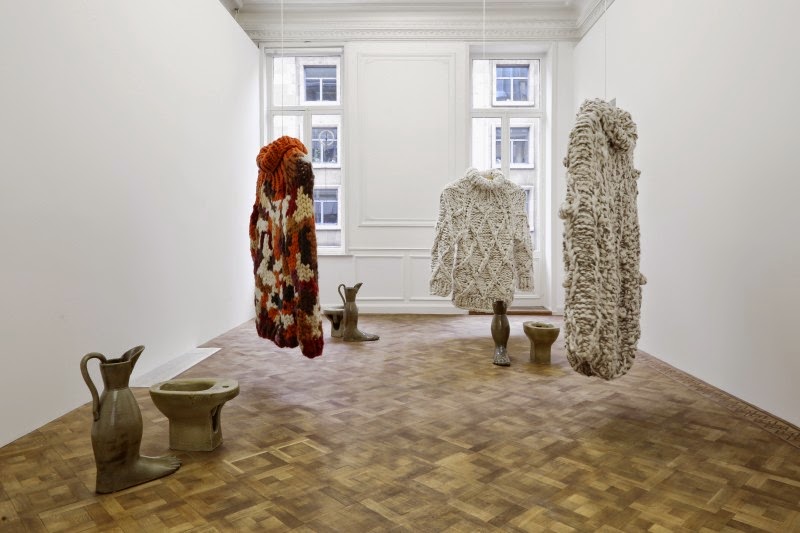
(link)
Can't help but think of the memento mori of Fischli and Weiss hand-carving trash. It was about "abusing time," the waste of labor, the clock. Here labor is venerated, monuments slow carved to it. Seating whittled with a snails pace. Again, the trend for stitching. Knitting that is engraved, like, do you get it? The look of craft, of labor, of farming. Concepts so alienated to us that they return as aura, as art. Nostalgia for a time that never existed. Now labor is a fun haycation. A thing for people who don't do it to experience as a novel other.
See too: Stitching Labor, Daniel Dewar and Grégory Gicquel at Portikus, Daniel Dewar and Grégory Gicquel at Micheline Szwajcer, Peter Fischli and David Weiss at Sprüth Magers
